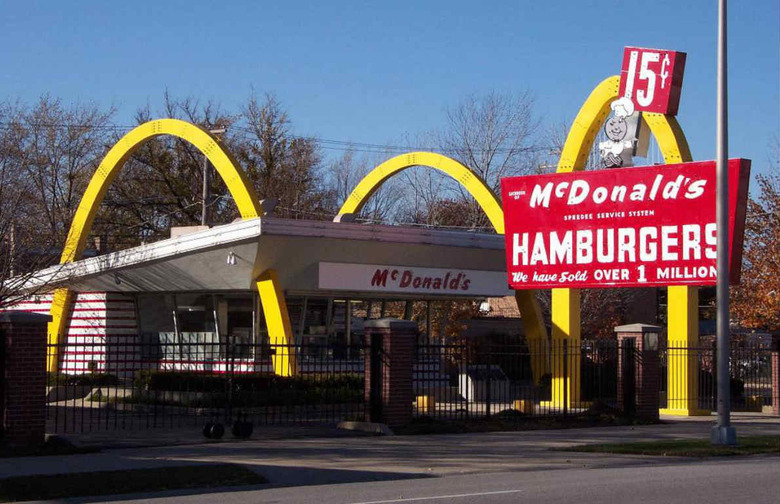McDonald's Prices Are Rising Faster Than Grocery Store Prices
McDonald's announced in its quarterly report that the U.S. restaurant industry will raise prices more than supermarkets this year, which will create further problems for an industry struggling to compensate for rising worker wages.
Thanks to weak quarter sales and a bleak forecast, McDonald's shares fell 4.5 percent. The report followed Dunkin' Brands Group Inc., Starbucks Corp., and Wendy's Co. in announcing disappointing results and weak consumer traffic.
Faced with the problem of decreasing numbers of consumers, restaurant companies now have to combat rising wages. Planned minimum wage hikes will raise the minimum wage from its current rate to $15 per hour, doubling the prevailing wage. The food service industry is hit hardest by this increase because it is the largest employer of minimum wage workers.
These increases squeeze into a restaurant's profit margin, which leaves owners with an impossible choice: watch profit disappear as wages increase or increase prices to accommodate for rising wages, further driving away customers and widening the gap between prices at restaurants and prices at supermarkets.
At-home food inflation is expected to rise by 1 percent or less this year, while experts think food away-from-home food inflation will rise between 2.5 and 3.5 percent.
Analyst Sara Senatore explained the reason for this difference: Restaurant companies not only use more labor than grocery stores, but also shoulder the additional burden of convincing franchisees — individuals who own local chapters of fast food chains — to hold back on price increases and instead make less money.
Driven by the Egg McMuffin's new status as an all-day menu item, McDonald's sales did go up in the last quarter — just not as much as analysts had hoped.
